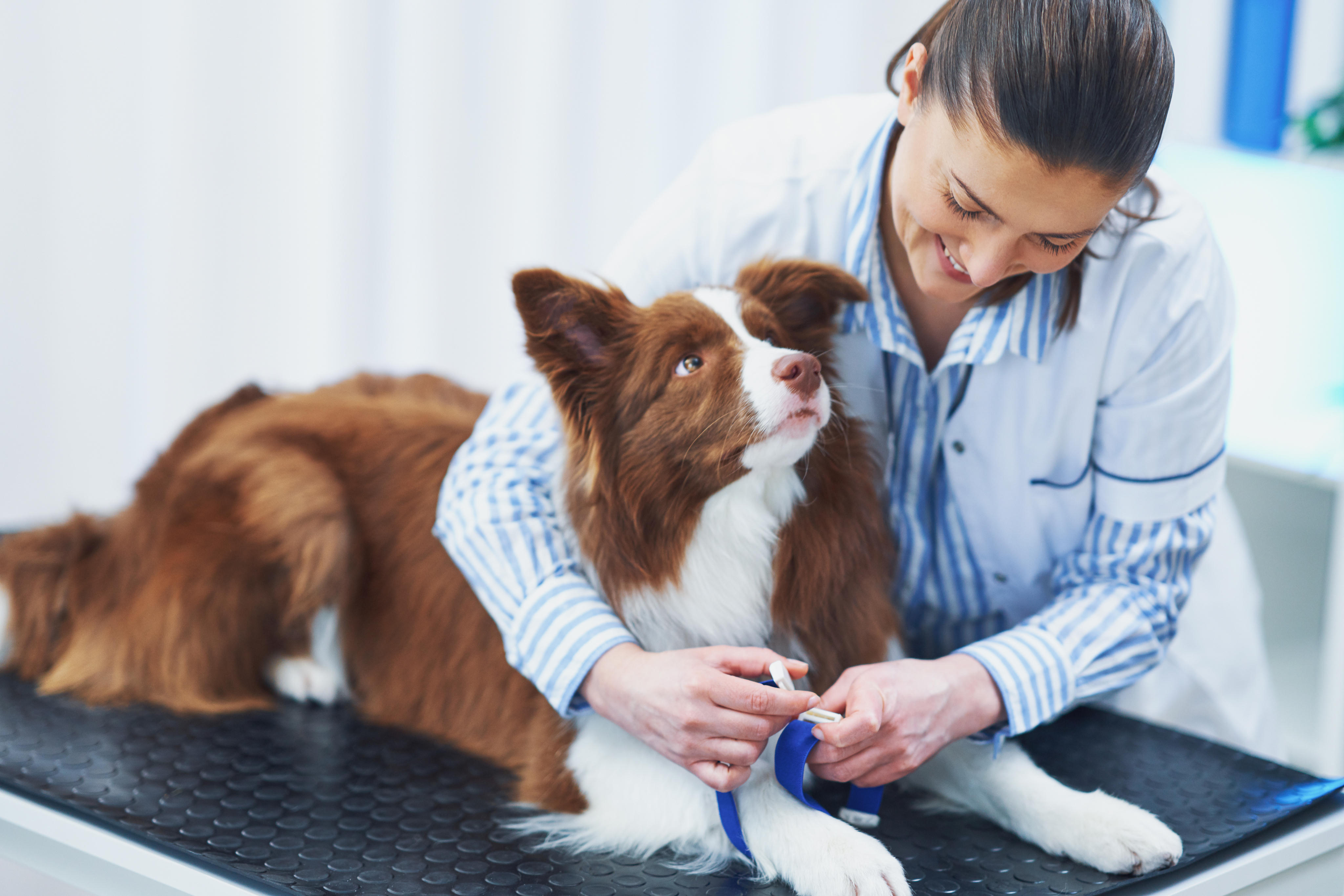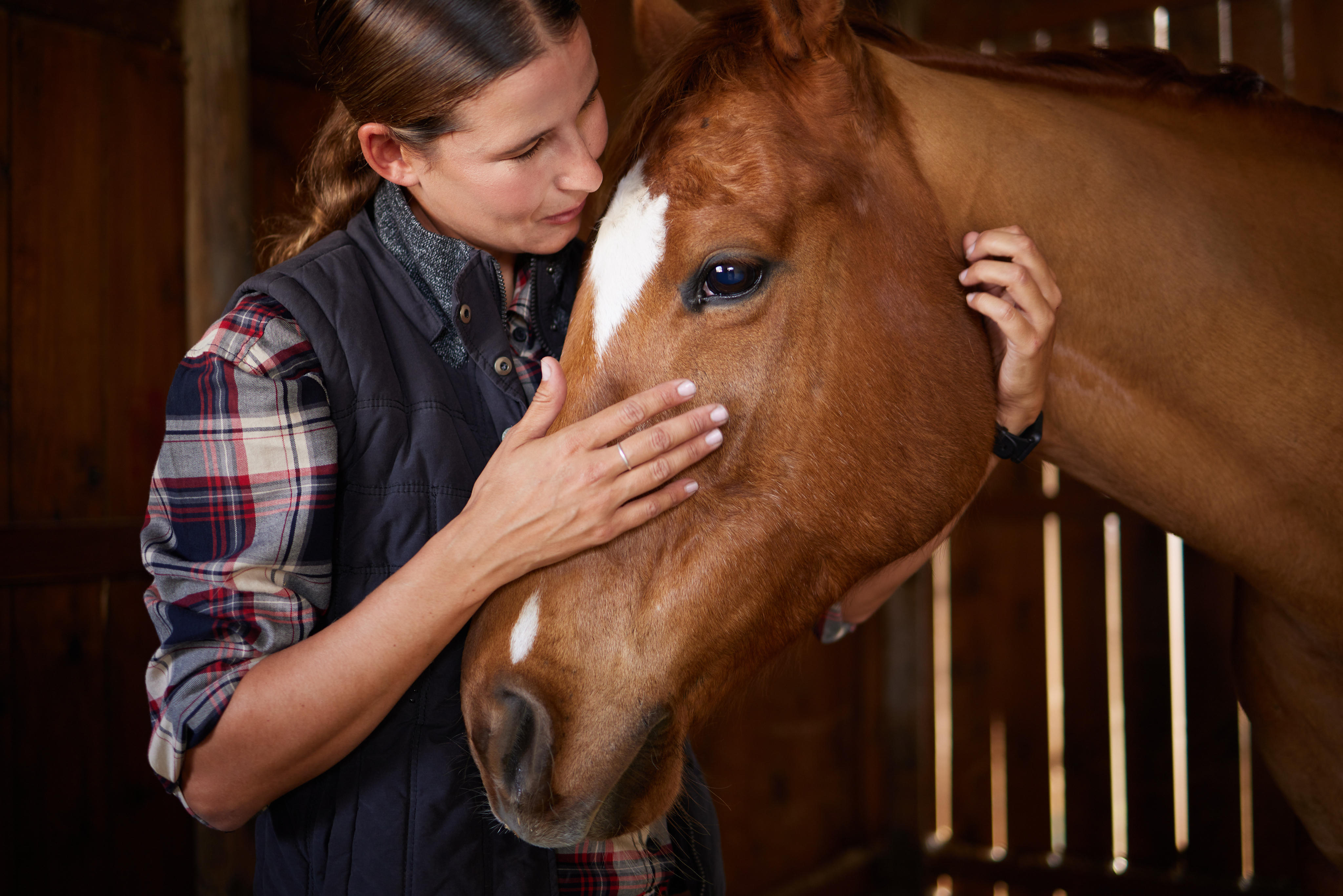Canine Leptospirosis
Leptospirosis is considered to be the most widespread zoonotic infection in the world, with infected dogs a source of infection.45,46
Product Description
NOBIVAC® LEPTO4
The only 4-way leptospirosis vaccine proven to protect against disease, mortality, and leptospiruria.
Disease Overview
Leptospirosis is an infectious disease that causes serious illness in dogs, other animals, and people. The disease is caused by spiral-shaped bacteria called leptospires that live in water or warm, wet soil.
Initial signs of leptospirosis include fever, lethargy, and lack of appetite. Left untreated, it can develop into a more severe, life-threatening illness that affects the kidneys, liver, brain, lungs, and heart.
CANINE LEPTOSPIROSIS FAST FACTS
- Prevalence of canine leptospirosis has increased in recent years.47,48
- As many as 8.2% of dogs are shedding leptospires, some asymptomatically.49
- Weather changes, population growth, and habitat encroachment have all increased human and canine exposure to pathogens and their carriers.47,48
TRANSMISSION
Transmission of leptospirosis can occur through direct contact or indirectly through environmental exposure.
- Leptospires enter the body through mucous membranes in the mouth, eyes, or nose, or through abraded or water-softened skin.50
- Leptospires multiply in a host animal’s bloodstream.
- Leptospires move from the bloodstream to the kidneys and other tissues to continue reproducing.
- Leptospires pass from the kidneys into the urine; then are shed back into the environment.
- Other dogs, wild animals, or people can become infected through direct or indirect contact.
CLINICAL SIGNS
- Fever
- Lethargy
- Weight loss
- Anorexia
- Depression
- Acute renal failure
- Jaundice
- Abdominal discomfort
- Vomiting and diarrhea
- Blood in urine is uncommon, but may occur
- Respiratory distress
DOGS AT RISK
Dogs at risk for developing leptospirosis include those with:51
- Access to ponds, lakes, streams, or standing water
- Exposure to urine from other infected animals, including:
- Other dogs in shelters or other pet care facilities
- Wildlife (e.g. rodents, racoons, opossum, deer), either through direct contact with urine or through contaminated water
MORBIDITY THREATS
As leptospirosis progresses, it can result in:50,51
- Leptospiremia
- Leptospires can multiply in the bloodstream and spread to many tissues and organs
- Vascular damage/thrombocytopenia
- Can lead to kidney failure and interfere with liver function
- Contributes to coagulatory abnormalities and hemorrhages
- Severe kidney and liver damage
- Acute renal failure occurs in dogs with severe clinical signs
- Acute hepatic dysfunction or chronic hepatitis have been caused by specific serovars
SPREADING DISEASE
Leptospiruria (urinary shedding)50,51
- Infected dogs can enter a carrier state
- Organisms may persist in the kidney and be shed in the urine for weeks to months
- Other dogs, wild animals, and humans can become infected from direct or indirect contact with these leptospires that were shed into the environment
KEEP YOUR STAFF PROTECTED FROM LEPTOSPIROSIS
Do you have a Standard Operating procedure to keep your staff and clinic safe if an outbreak occurs?
DOWNLOAD THE LEPTO SOPMerck Animal Health Vaccines
Easy Ways to Inform Pet Parents about Leptospirosis
Professional Resources and Educational Materials
Keep your clinic and staff informed and aware of diseases and outbreaks.
View More Nobivac ResourcesReferences
Urinary Shedding Challenge Study
Read the study which proves Nobivac® Canine 1-DAPPv+L₄ effectively protects against leptospiremia and leptospiruria of (4) serovars.
Prevention of Leptospiremia and Leptospiruria Following Vaccination With a DAPPv + 4-way Leptospira Combination Vaccine
Rhonda L. LaFleur, Jennifer C. Dant, Anna L. Tubbs, Huchappa Jayappa, David Sutton, Ian Tarpey
Background: Leptospirosis, characterized by high fever, anorexia, vomiting, abdominal pain, diarrhea, myalgia, polyuria/polydipsia, jaundice, epistaxis, hematuria, and/or reproductive failure, continues to cause considerable morbidity among infected canines. Direct transmission of Leptospira spp. occurs when dogs come into contact with infected urine or ingest infected tissue. After dogs become infected, the spirochetes circulate in the blood for several days1,3 where they cause extensive damage to the endothelium of small blood vessels (leptospiremia). After the leptospiremic phase, the spirochetes can further colonize various organs, including the kidneys, where dogs can become a carrier and potentially shed organisms in the urine for months (leptospiruria). Leptospira interrogans serovars Canicola and Icterohaemorrhagiae are traditional causative agents of canine leptospirosis, and while the use of bacterins have decreased the prevalence of the disease, significant morbidity can still be attributed to infection with these serovars.
Aim of the Work: In this study, we combined inactivated L interrogans serovars Canicola, Pomona, and Icterohaemorrhagiae and L kirschneri serovar Grippotyphosa with Nobivac® Canine 1-DAPPv (Animal Health at Merck & Co., Inc., Kenilworth, NJ USA), a commercially available vaccine that contains modified live canine distemper virus, adenovirus, parainfluenza virus, and parvovirus. We then vaccinated dogs with the combination product and evaluated the ability of the vaccination to prevent leptospiremia and leptospiruria following challenge with viable organisms of each serovar.
Read More about this study hereDisease & Mortality Study
Read the study which proves high efficacy of Nobivac® Lepto₄ vaccine under severe challenge.
Prevention of Disease and Mortality in Vaccinated Dogs Following Experimental Challenge With Virulent Leptospira.
R LaFleur, J Dant, T Wasmoen. Intervet / Schering Plough Animal Health, Elkhorn, NE.
Canine Leptospirosis can vary from subclinical infection to illness that ranges from mild to severe, including death, depending on the susceptibility of the dog, virulence of the organism, and route and degree of infection. The objective of this study was to evaluate the ability of a canine Leptospira bacterin to prevent infection and disease following challenge with virulent Leptospira canicola, L. pomona, L. grippotyphosa, or L. icterohaemorrhagiae. Groups of 8-week-old beagles were vaccinated (day 0) and boosted (day 21) with placebo (n = 10) or the 4-way bacterin (n ≥ 20) and subsequently challenged with each serovar. The results demonstrated that blood and various tissue samples from placebo-recipients became reliably infected, and the dogs developed typical clinical signs of Leptospirosis including loss of appetite, ocular congestion, depression, dehydration, jaundice, hematuria, melena, vomiting, petechiae, and death. In addition, placebo-recipients developed kidney and liver dysfunction. In contrast, some vaccine-recipients became infected, but the organisms were cleared quickly from the blood. Vaccinated dogs failed to develop severe clinical disease requiring medical intervention, and no animals died (p > 0.001). A few of the vaccinated dogs developed clinical abnormalities, but the clinical signs remained mild and were self-limiting (p < 0.0001 for each serovar). Administration of the bacterin also prevented thrombocytopenia (p < 0.0001), kidney complications caused by L. canicola (p < 0.0001), L. icterohaemorrhagiae (p < 0.0001), and L. pomona (p = 0.012), and liver dysfunction caused by L. pomona (p < 0.0001) and L. grippotyphosa (p < 0.0001). The results therefore confirmed that vaccinating dogs with the 4-way Leptospira bacterin provided a high degree of protection (99.5%-100%) against the clinical signs of Leptospirosis including mortality.




 Go To United States
Go To United States Algeria
Algeria Argentina
Argentina Australia
Australia Austria
Austria Bahrain
Bahrain Belgium (Dutch)
Belgium (Dutch) Brazil
Brazil Canada (English)
Canada (English) Chile
Chile Colombia
Colombia Croatia
Croatia Czech Republic
Czech Republic Denmark
Denmark Ecuador
Ecuador Egypt
Egypt Finland
Finland France
France Germany
Germany Greece
Greece Hungary
Hungary India
India Indonesia
Indonesia Iraq
Iraq Ireland
Ireland Israel
Israel Italy
Italy Japan
Japan Jordan
Jordan Kuwait
Kuwait Lebanon
Lebanon Malaysia
Malaysia Mexico
Mexico Morocco
Morocco Netherlands
Netherlands New Zealand
New Zealand Norway
Norway Oman
Oman Panama
Panama Peru
Peru Philippines
Philippines Poland
Poland Portugal
Portugal Qatar
Qatar Romania
Romania Russian Federation
Russian Federation Saudi Arabia
Saudi Arabia South Africa
South Africa South Korea
South Korea Spain
Spain Sweden
Sweden Switzerland (French)
Switzerland (French) Taiwan
Taiwan Thailand
Thailand Tunisia
Tunisia Turkey
Turkey Ukraine
Ukraine United Arab Emirates
United Arab Emirates United Kingdom
United Kingdom Uruguay
Uruguay Yemen
Yemen Global
Global